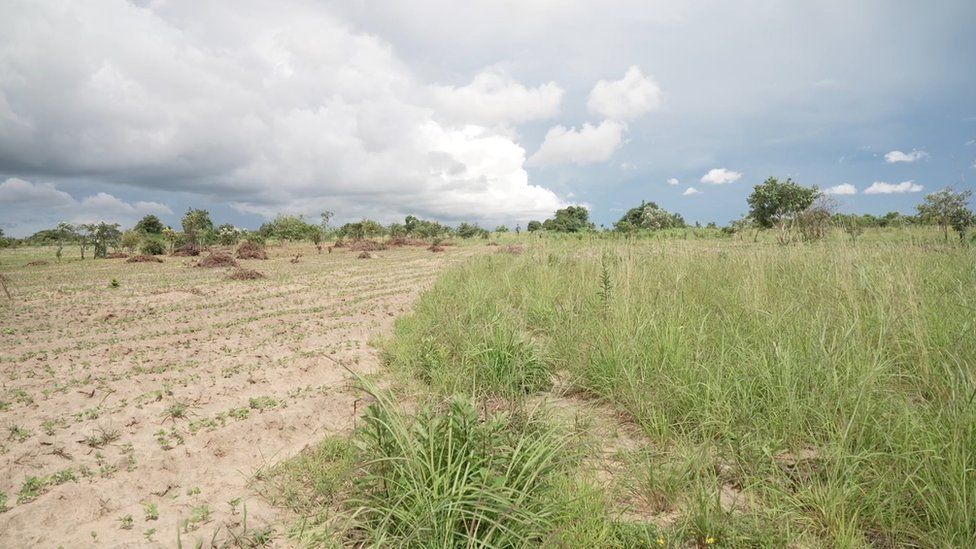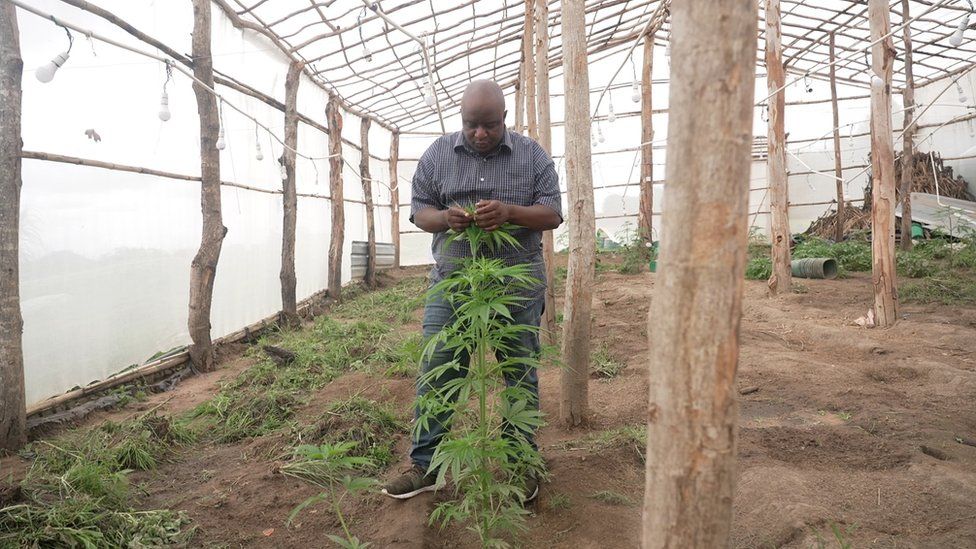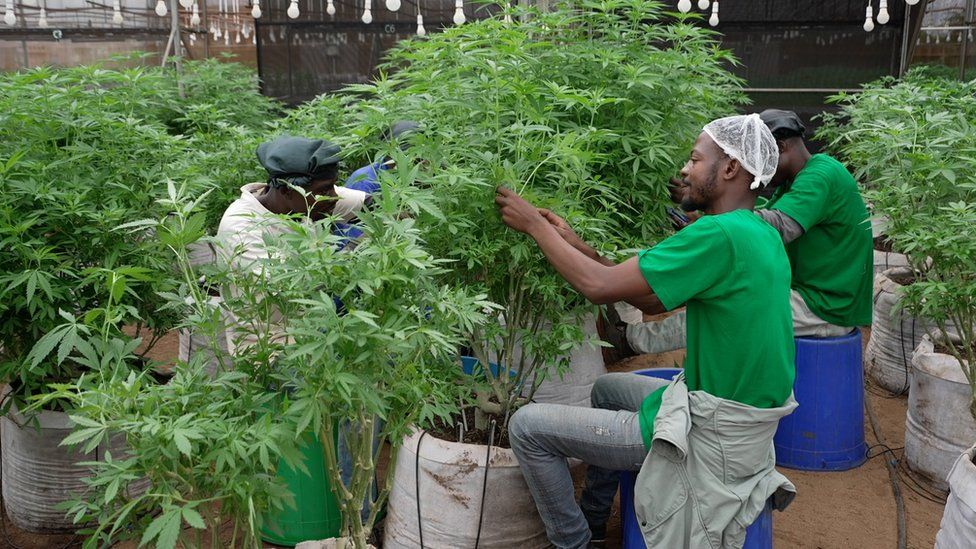Malawi legalised cannabis farming for industrial and medicinal use in February 2020 hoping to take advantage of the booming global demand and move away from the reliance on tobacco as an export crop.
Ms Chilembwe, who has been farming tobacco in Kasungu in the west of the country for the last seven years, also scented an opportunity to replace her shrinking returns.
She was not the only one – hundreds of other farmers have also been left disappointed.
The United States Cannabis Association-Malawi (USCA), a private Malawian company, has been one of those at the centre of this failure, yet it still hopes that things will work out.
As part of its vision for how the country could benefit from cannabis, the government wanted to involve as many small-scale farmers as possible who would source seeds from local private companies and then sell the harvest back to them.
But things did not work out as planned.

As part of a requirement to get a growers’ licence from the government, Ms Chilembwe joined hands with other tobacco farmers nearby and registered a co-operative group.
Having already paid $1,500 (£1,200) to acquire the licence, Ms Chilembwe says the group paid thousands more dollars to USCA for registration, seeds and training in 2021.
But she got neither the seeds nor the training.
“I think the problem lies with [USCA], who cannot deliver what they promised, and then the government itself which does not seem willing to help us
“This is why we are stuck,” the farmer tells the BBC.
The land where she hoped to set up greenhouses has remained bare, something she says has led to a huge loss to her family.
Maquenda Chunga has a similar story.
“We have got a contract with [USCA] which they gave us a price of $80-$150 per kilogram,” he says.
Mr Chunga is a former politician who served as an MP for five years up to 2019 and supported the legalisation of cannabis in parliament.
The co-operative of 15 farmers which he leads managed to raise some $250,000 to set up greenhouses.
However, he says USCA only supplied a fraction of the expensive seeds paid for.

The initial harvest they managed to produce now lies in boxes inside a small store house with nowhere to go despite USCA also having committed itself to buy the harvested hemp.
“We had hope, [that] if we borrowed the money from the bank we knew that we would pay it back,” adds the disgruntled former parliamentarian.
He blames the government for not ensuring that USCA would live up to its promises.
USCA is one of the four private entities licensed by the government to produce cannabis in Malawi.
In order to acquire this licence, a company had to “have a warehouse, and ability to process either medicinal or industrial hemp”, says the Cannabis Regulatory Authority (CRA), in a statement issued to the BBC.
But USCA has neither a warehouse nor the processing facility.
The company has nearly 7,000 farmers on its register.
Its chief executive officer Paul Maulidi blames a fall out between the local owners of the company and foreign investors who allegedly pulled out of an investment deal.
The head of CRA says the money that was raised from the farmers was spent on running USCA’s office operations, and this left them with no funds to carry out their plans.
But Mr Maulidi still believes things can work out. He only joined the company last year and insists he is there to make things right.
“There must be some people who can come in and say let’s do something about it to rectify the situation. I still feel farmers need to be helped,” Mr Maulidi says.
“We are engaging with the co-operatives who are coming here and we are telling them of our plans and how we can execute those plans.”
The CRA says it has asked the company to fulfil its contracts or refund the farmers.
Furthermore, it has given USCA a three-month grace period after its licence had expired and says it will only renew it if farmers’ concerns are addressed.
The authority has asked USCA “to fulfil their agreement with farmer co-operatives or else they should pay back the money”, the regulator told the BBC in an email response.
But the problem is not just with USCA.
Out of the four companies operating in the cannabis industry in Malawi, only one still has a valid licence. The other two are yet to launch commercial operations according to the regulator.
The government insists farmers will get help.
The farmers “should come forward and present their case through the CRA to us and we will show the direction as to how they can be assisted”, says Dixie Kampani, an assistant minister in the department of agriculture, but he did not elaborate on the plan.
There has however been one success.
Invegrow, a company owned by a mix of local and foreign investors, employs hundreds of people, and grows cannabis from the nursery to the flowering and harvesting stage.

This is in addition to having a processing factory on site in the capital, Lilongwe, where they produce cannabis oil for local sales and export as well as other by-products like animal feed.
But they are yet to sign up many farmers.
“We have been piloting with 100 farmers for production of seeds only for the past one year,” says Nebert Nyirenda, the company director.
The growing of the crop for sale is a separate process.
If the scale of their operations is anything to go by, cannabis farming in Malawi could be out of reach for the majority of the farmers it was initially targeted at.
“We have invested $4m since 2013, part of it went to research and lobbying but the bulk has gone into setting up the infrastructure you can see here,” Mr Nyirenda adds.
Malawi is still saying that it can make a success out of cannabis.
But for now farmers like Ms Chilembwe and Mr Chunga who had hoped to benefit say they have been left financially scarred by this experience.















































